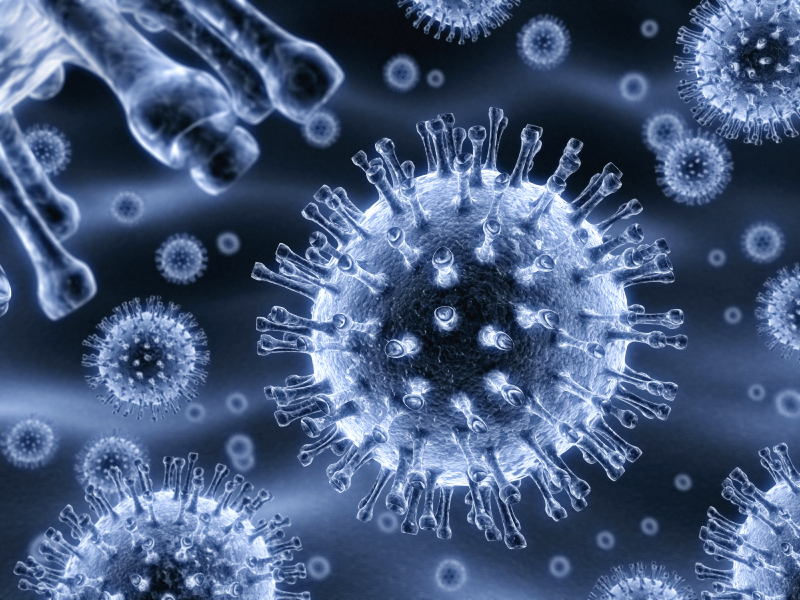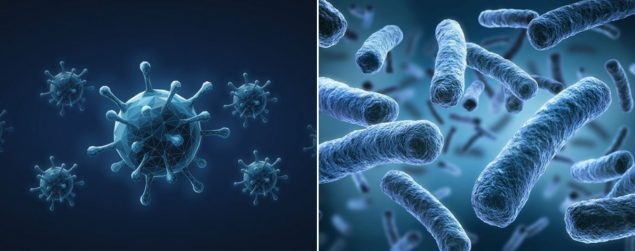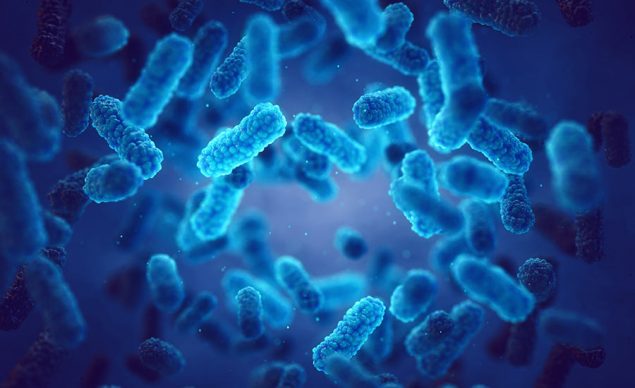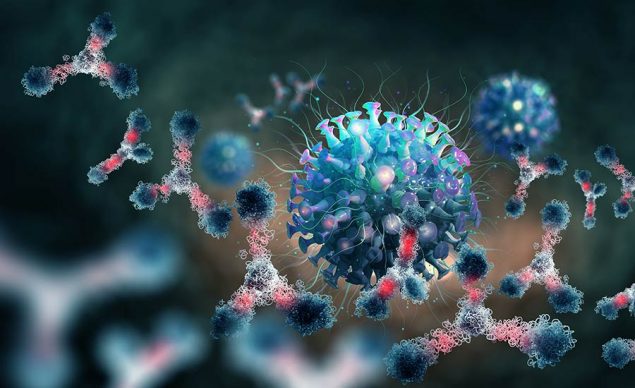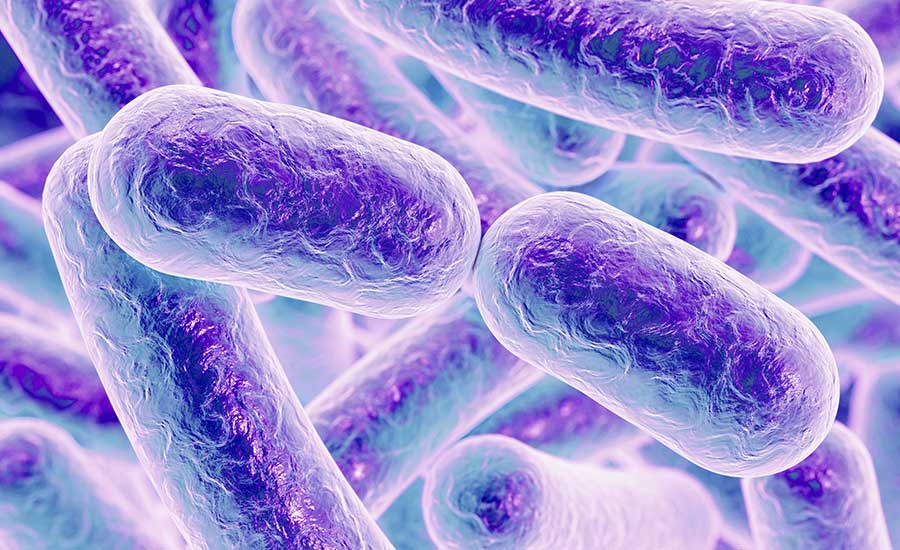Related Resources
Bacteria is a word that can send chills down the spine of even the strongest BioWarrior – both literally and figuratively!
If you’ve been sick recently, you know the culprit is likely some bad virus or bacteria, also known as pathogens.
But unlike viruses, which are all bad, there are healthy bacteria that thrive both within our bodies and in the outside world, performing essential tasks that range from breaking down the food in our stomach to ensuring soil is healthy enough for plants and vegetation to grow.
So, what role does the battle of good bacteria vs. bad bacteria play within the BioCosmos?
Let’s start from the beginning.
Bacteria are simple single-celled organisms and one of the first living things to appear on Earth.
You’d be hard pressed to find a place where bacteria don’t exist, as they can survive anywhere from the human stomach to the deepest parts of the Earth’s core.

What Is Good Bacteria?
Good bacteria are found everywhere in the human body, from inside our mouths to across our skin.
In fact, we carry as many bacterial cells living inside and outside our bodies as the rest of our cells combined.
While most of these bacteria are totally benign and exist peacefully inside the BioCosmos, like nomadic eColi tribes, there are many other forms of bacteria that provide tangible benefits to the Host.
Some bacteria benefit the body by assisting in digesting food and absorbing nutrients. Others heal issues like stomach ulcers, yeast infections and eczema.
Perhaps the most beneficial of all, certain strains of good bacteria protect our bodies from bad bacteria by altering pH and acidity levels in the BioCosmos, or by releasing toxins that directly attack pathogens. They play an active role in defending our bodies against disease.

Is Bad Bacteria Harmful?
Only a small handful of bacteria are harmful to our bodies.
Bad bacteria make up only 1% of the total number of bacteria found in the world, increasing the chances of encountering mainly healthy bacteria.
When these bad bacteria are introduced into the body, you’re likely to just end up in bed for a few days fighting a simple cold, but in some extreme cases, dangerous pathogens can lead to severe illness and even death.
Bad bacteria are the root cause behind diseases like pneumonia, meningitis, strep throat and food poisoning.
In the Biowars universe, we find Alex Hawking’s BioWarriors working together to fight off bad bacteria like Tenzor, who began as a harmless eColi bacterium but mutated into a much more dangerous pathogen, charged with leading the bacterial pathogenic forces against Blastor and his army.

Help The Good Guys Win With Probiotics
When our bodies are infected with a pathogen, we already know that our Macrophages, B-cells and T-cells go into overdrive to fight off the virus, often working alongside the good bacteria present in our systems.
However, when we take antibiotics to help to kill off the harmful bacteria infecting our BioCosmos, the medicine often will attack our helpful bacteria as well – but there is a way to support and replenish them.
We’re talking about probiotics. These are live bacterial cultures and yeasts that are especially helpful for fighting off digestive system issues.
Increasing your intake of these after an illness can help keep your BioCosmos functioning smoothly! Here are some of the most beneficial probiotics and how they can support your body.
#1: Lactobacillus
Lactobacillus is a regular in your digestive system — it’s one of the most important bacteria in the human body.
Also known as lactic acid bacteria, lactobacillus is fermenting bacteria responsible for several essential functions of your digestive tract, such as:
- Breaking down lactose, the sugary element of milk and dairy products
- Producing lactic acid, which helps fight bad bacteria
- Reducing oxygen toxicity in your muscles and helping them grow
Lactobacillus is so at home within your digestive system because it’s used to make most fermented foods we consume, such as:
- Yogurt
- Wine
- Cheese
- Kimchi
- Sauerkraut
- Sourdough bread
The ways in which these bacteria may benefit your health are plentiful, including:
- Preventing and relieving diarrhea
- Promoting weight loss
- Relieving symptoms of irritable bowel syndrome (IBS)
- Promoting skin health and alleviating eczema symptoms
#2: Bifidobacterium
Along with lactobacillus, Bifidobacterium is the other common species of bacteria found in your body — mainly in the digestive tract.
In fact, they are so plentiful in your gut because they start populating it almost immediately after you are born.
Bifidobacterium are closely related to lactobacillus both biologically and in terms of the purpose they serve in your body. These friendly microbes are responsible for:
- Breaking down fiber and complex carbohydrates — nutrients that are essential to a healthy diet
- Producing short-chain fatty acids — chemicals that help balance the gut microflora
- Producing acetate — a chemical that helps combat infections
As you can see, Bifidobacterium are essential to your gut health. And while they might be relatively plentiful in your digestive tract, they only make up around 10% of all good bacteria found there.
This is why you should do your best to help them maintain healthy numbers — so that they can help maintain your health. To do that, be sure to eat fiber-rich foods, such as:
- Apples
- Almonds
- Pistachios
- Blueberries
- Onions
- Bananas
- Cocoa
- Green tea
- Whole grains
In other words, don’t skip your raw fruits and veggies — preferably with the peel — and double down on those oats!
#3: Saccharomyces
Saccharomyces roughly translates from Greek as “sugar yeast.” And if your basic biology is not too rusty, you will probably remember that yeast is a type of fungi.
As such, Saccharomyces are more closely related to the mushrooms on your pizza than to other types of probiotics, biologically speaking.
These humble microorganisms are not alien to humans, though — they are commonly used to make bread, beer and wine, which earned them the nicknames “baker’s yeast” and “brewer’s yeast.”
Moreover, the fungal nature of Saccharomyces makes them very easy to administer as supplements, similarly to antibiotics. In fact, because they are so closely related, this yeast can help reduce the negative impact of antibiotics on your gut microbiota.
Other benefits that Saccharomyces can have on your health are similar to those of Lactobacillus — improving digestion, preventing diarrhea and so on.
Needless to say, their ability to boost the positive effects of other probiotics makes them a real hero of your BioCosmos!

Boost Your Gut Health With Prebiotics
First things first — prebiotics are not the same thing as probiotics, even though their names are similar.
Prebiotics are specific foods and substances that can boost the growth of probiotics and other beneficial bacteria. They mostly include fiber and some carbohydrates that your digestive system cannot process.
As a result, once these substances enter your digestive tract, they become food for your gut microbiota.
In other words, if probiotics are the rocket ship, prebiotics is the fuel.
You can obtain prebiotics from a variety of sources, all rich in a specific variety of prebiotic fiber. Feel free to choose your fuel from the following foods:
- Oats
- Seaweed
- Beans
- Chickpeas
- Asparagus
- Leeks
- Dandelion greens
- Chicory root
- Apples
- Cocoa
- Flaxseeds
- Garlic

Good Bacteria vs. Bad Bacteria: Takeaways
In the Biowars saga as well as in the real world, our internal ecosystem is a constant battle – or balance – between good and bad.
The next time you hear the word bacteria, remember that you have a massive amount of healthy bacteria working constantly to keep your body going. It’s not just the BioWarriors that keep you functioning – it’s the bacteria that surround you, as well!
Sometimes, especially after a prolong illness, the healthy bacteria in your body might need a helping hand.
To give it a boost, increase your intake of foods and supplements that are rich in probiotics — specific microorganisms that can boost and strengthen the population of good bacteria in your body.
The most common and beneficial probiotics are:
- Lactobacillus
- Bifidobacterium
- Saccharomyces
These can be found in many fermented and fiber-rich foods, such as yogurt, cheese, green tea and apples. In other words, if you wish to support your body’s population of good bacteria, be sure not to skip out on healthy foods.
To strengthen the presence of the good bacteria in your gut even more, include a few prebiotic foods in your body.
Prebiotics are hard carbs and fiber that serve as food for probiotics and other bacteria. Asparagus, beans and flaxseeds and among the best sources of prebiotics.
The grand battle of bacteria in your body is not likely to stop any time soon. The good thing is that there is a lot you can do — and a lot you can eat — to support the brave warriors of your BioCosmos!

